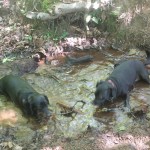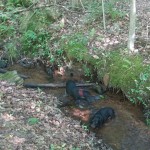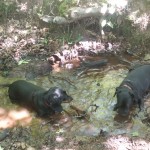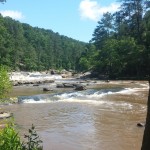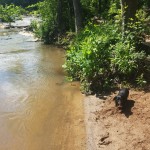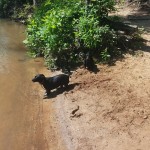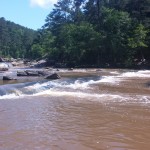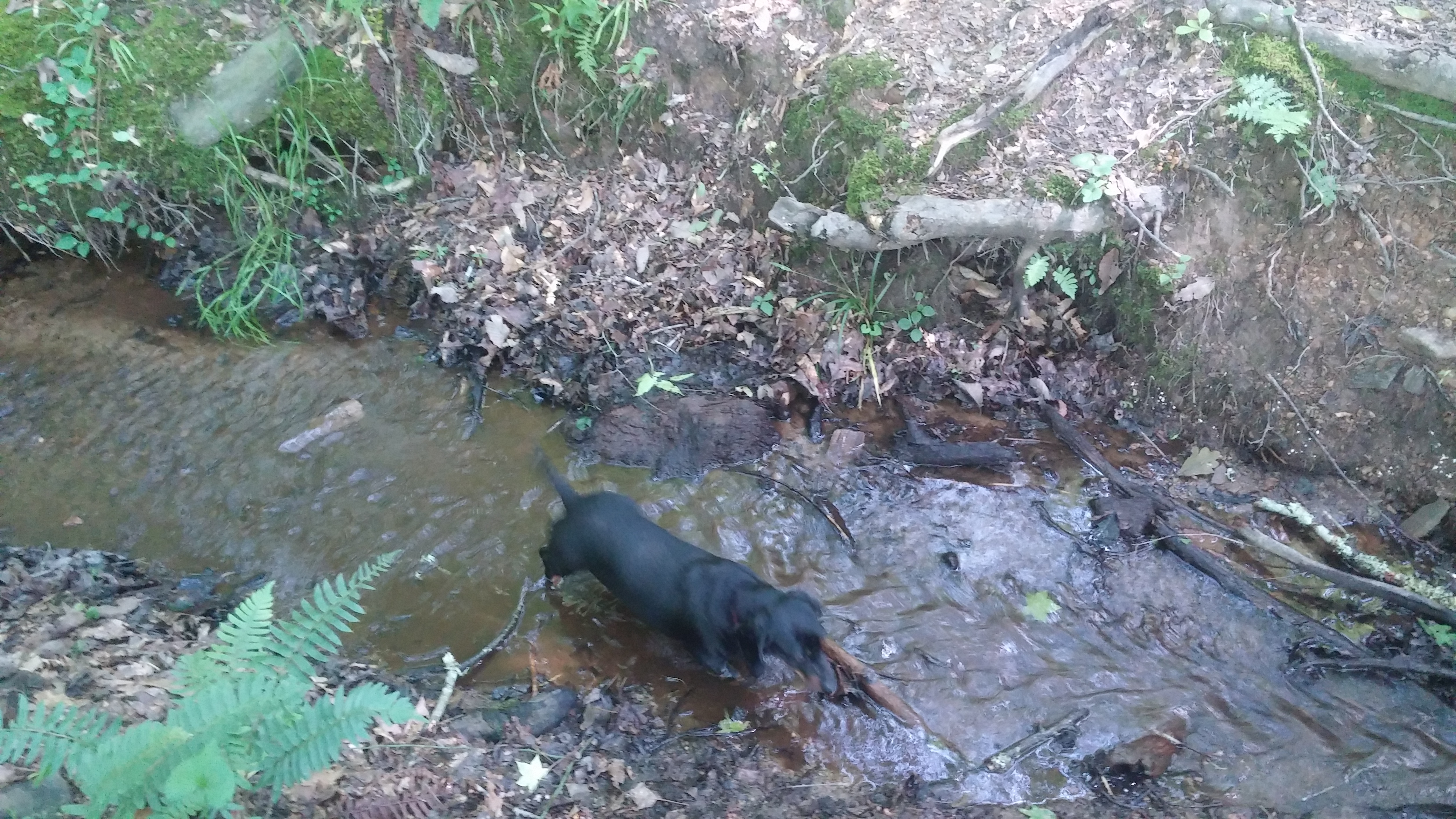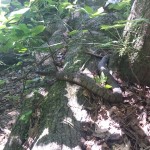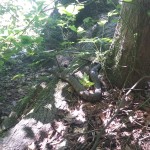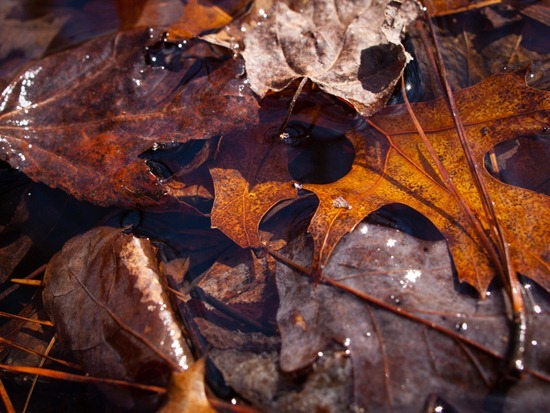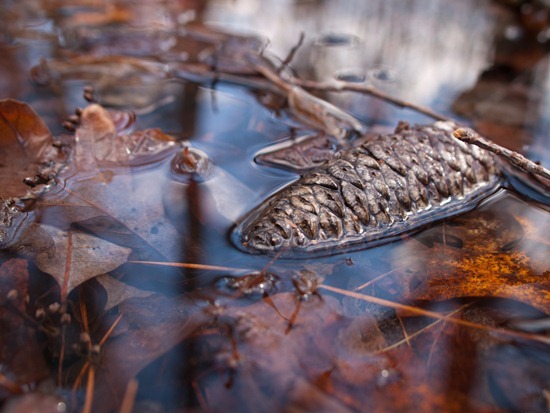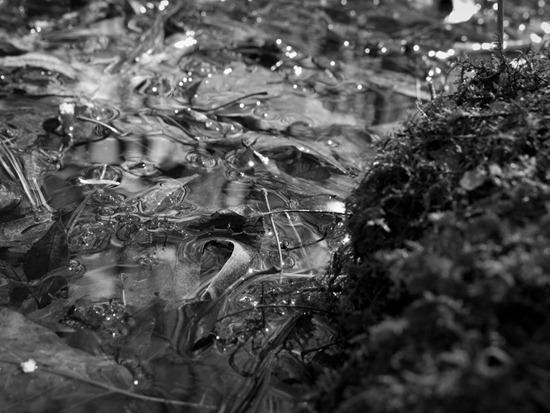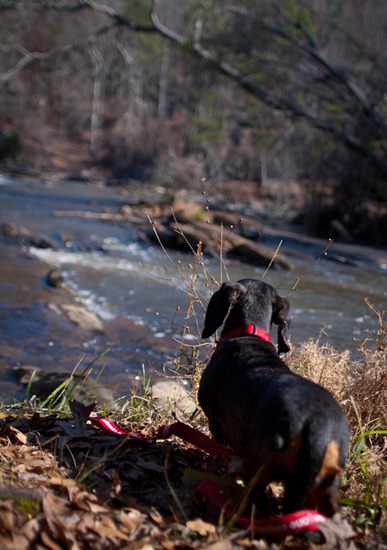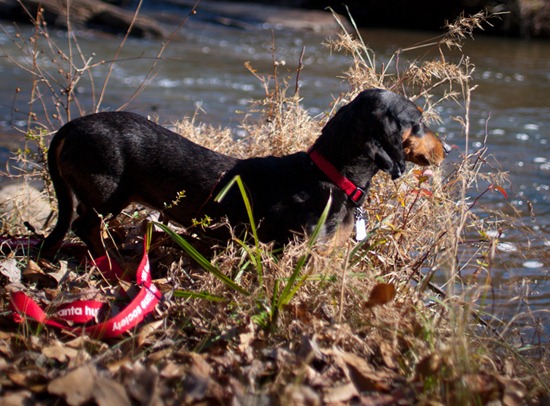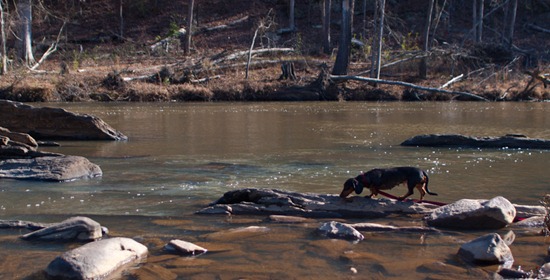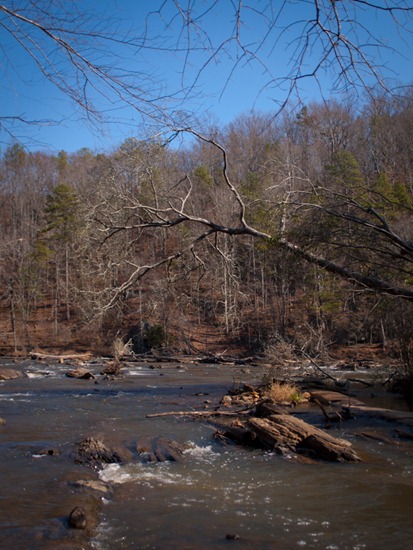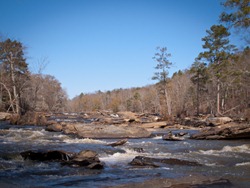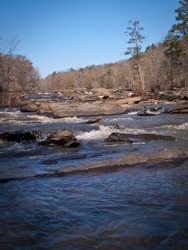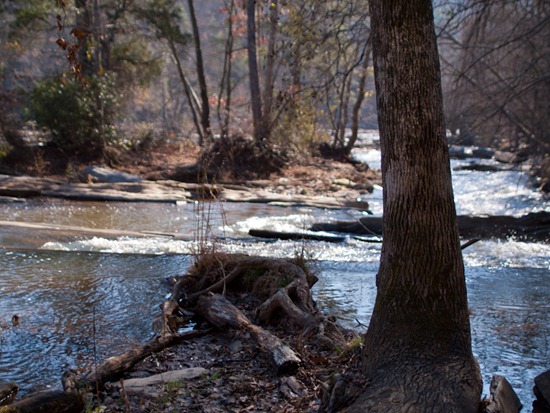The dogs rest in a cool stream and play in the Chattahoochee during our 5 mile hike at Sweetwater Creek State Park.
We came across a couple of hikers claiming a copperhead sighting—it’s a non-venomous watersnake (Nerodia sp.). I think some of the easiest ways to tell a water moccasin (cottonmouth) from a watersnake is (1) the heat-sensing pits between the eyes and nostrils and (2) the cat-like pupils. Certainly, the block-y, triangular head of viperids is distinctive too, but watersnakes tend to flatten themselves out when threatened, so their heads may appear triangular.
I’m not entirely confident in its species-level identification: there are several species of Nerodia in Georgia, including the Northern Watersnake (N. sipedon), the Brown Watersnake (N. taxispilota), the Banded Water Snake (N. fasciata), which occurs in Southern Georgia—Sweetwater Creek State Park doesn’t lie in the reported range of that species— and the Red-Bellied Water snake (N. erythrogaster), which is easily distinguished from other Nerodia by its solid, pinkish-red underside.
I’ve seen a lot of N. sipedon from Ohio and New York, and this individual struck me as appearing to have a small head. Reading the description of a ‘high eye close to the nostril’ at the Savannah River Ecology Laboratory, I’m apt to claim this is a Brown Watersnake (N. taxispilota), which is a new species for me. Sweetwater Creak State Park lies at about the range overlap of N. sipedon and N. taxispilota, which could dramatically complicate identification if hybridization occurs.
Unfortunately, I didn’t have anything but my cell phone camera, and it was big… so I didn’t catch it.

